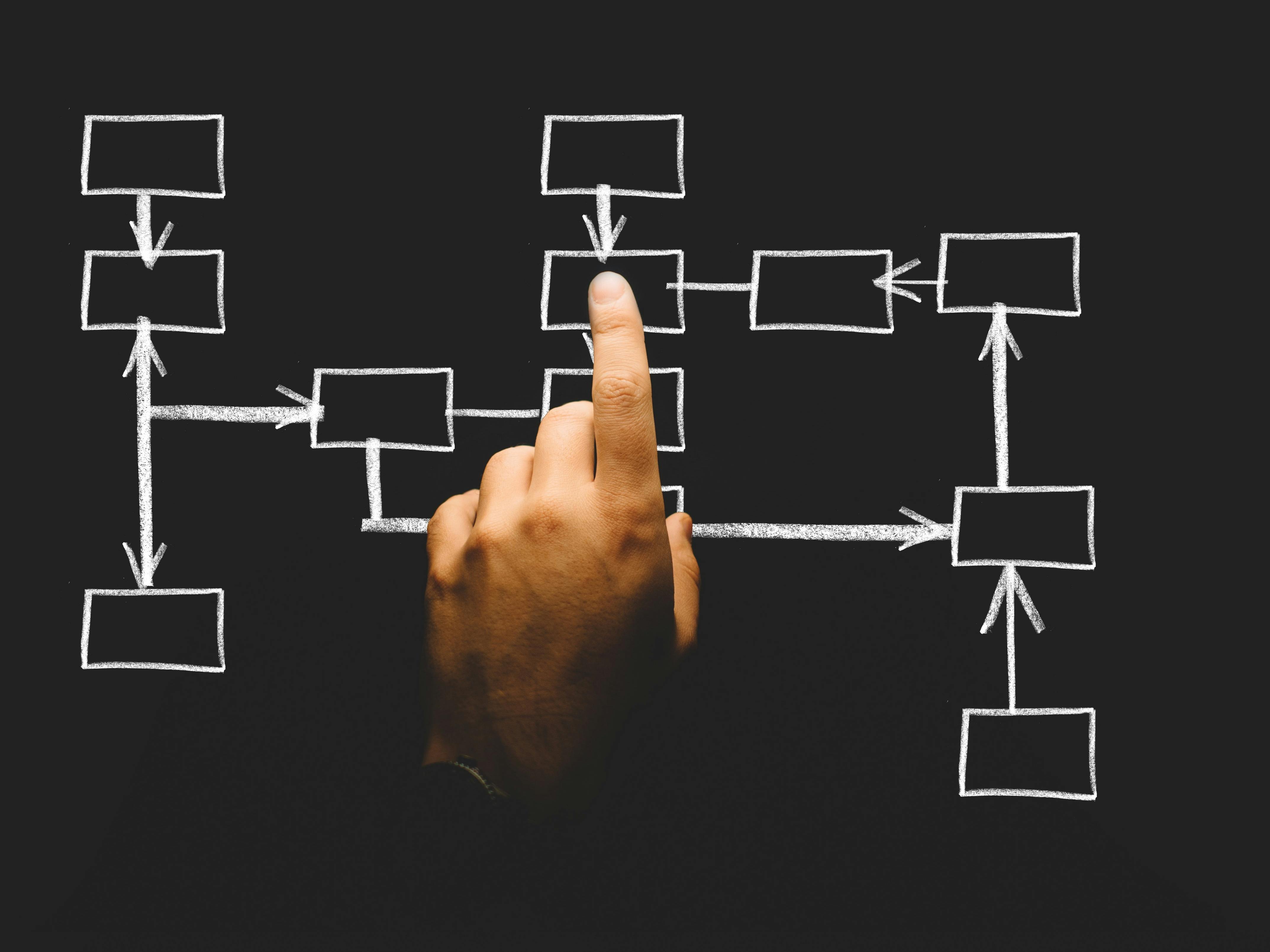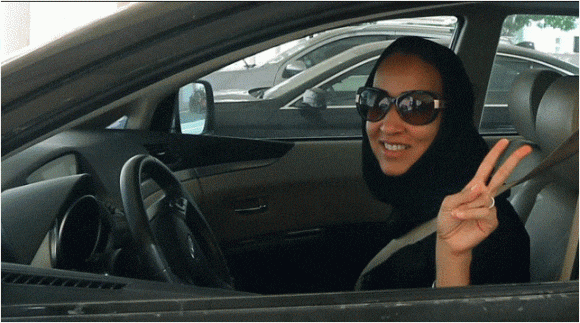
From “Saudi Aramco efforts to balance upstream and downstream industries in KSA”, (2016, April 07). Oil Review.me. (http://www.oilreview.me/petrochemicals/saudi-aramco-efforts-to-balance-upstream-and-downstream-industries-in-ksa). (Image Source: Jeff S. PhotoArt at HDCanvas.ca/Flickr). In the public domain.
The first word that comes to mind when you hear Saudi Arabia is OIL. But, there is much more to this relatively young country than just Black Gold. This kingdom is steeped in culture and religious conviction (“Muslim (official; citizens are 85-90% Sunni and 10-15% Shia))”. Additionally, this nation is a monarchy created in 1932 by ABD AL-AZIZ bin Abd al-Rahman Al SAUD (Ibn Saud) constructed by a proud, self-sufficient nation (CIA, 2016). However, this region has also been plagued by stereotypes and animosities. Furthermore, the kingdom has also struggled with their perceptions of the United States and European nations. In the past decades, “both Arabs and Westerners are given to distorting each others’ actions, behavior, and beliefs, thus promoting mutual xenophobia” (Moran, Abramson, & Moran, 2014, p. 331). As defined by Merriam-Webster, xenophobia is identified as the “fear and hatred of strangers or foreigners or of anything that is strange or foreign” (Xenophobia, n.d.). This hostility and distrust of different cultures between Western societies and Saudi Arabia have historically caused a lack of cultural synergy and cross-global industrial trade.
However, ‘Times They Are A-changin”! Since the ascension of King Salman bin Abdulaziz Al Saud to the throne in 2015 and the subsequent assignment of Mohammed bin Salman, as the Deputy Crown Prince, President of the Council for Economic and Development Affairs, and Minister of Defense, the kingdom is going through many changes. Among these transformations, Saudi Arabia is finally attempting to embrace globalization and they are looking to diversify their economy to not be so dependent on Oil production. These changes, also known as Mohammed bin Salman’s “Vision 2030” consists of: (Alkhalisi, 2018)
- Increased Taxes
By increasing local gas prices to ~ $2.05/gallon at the pump and adding a new 5% sales tax, the kingdom has been able to assist in reducing the country’s deficit without relying on foreign loans.
- Movies are back
After 35 years, the people of Saudi Arabia are finally able to see the movies available to the rest of the world that had been prohibited for many years in the kingdom. Additionally, it is expected that this introduction could have the potential to be a $1 billion industry.
- Women can drive
The first step in increasing the rights of women and the goal of Vision 2030 to expand women in the workforce from 22% to 30% and the ultimate goal of “generating 65% of GDP from the private sector” starts with women gaining the right to drive. This has been a long battle that has been finally attained.
- Family days
Additionally, women and men have often been segregated in public. Thus, a second win for women’s right scan be observed in the concept of “accommodating families” at sporting events and allowing men and women to sit together in communal areas.
- Increased tourism
With the growing drive to promote tourism, for the first time in history, tourists will be eligible for visas. Furthermore, the government is planning to build resorts in an attempt to “attract 30 million visitors a year by 2030, up from 18 million in 2016”.
- Aramco – “going public”
The Saudi stock market has surprisingly been an attractive emerging market without the inclusion of the government’s largest owned company, Aramco. However, if officials sell as few as 5% of the shares to investors, this “would raise $100 billion”.
Due to the contemporary philosophies and the goals of diversification of the new regime in Saudi Arabia, this is the perfect time to form alliances and bridge gaps between the Western World and the Kingdom of Saudi Arabia. In fact, Energy Minister Khalid al Falih commented “Our message to investors is that the kingdom is transformed, we’re serious about change, it’s comprehensive change”. Additionally,” ‘(We need to) not only be ready for the future but to create the future through initiatives that are not only around our traditional strength in oil and gas, which we’re going to build on, but also about creating new industries, through mining, through more advanced manufacturing, through tourism and at the same time socially there are a lot of reforms – all of these are coordinated and they’re bringing a lot of hope,’ he said” (Ellyatt & Gamble, 2018, para. 14-15).
Thus, there is no time like the present for all parties to embrace the concept of growth and change. As noted by Moran, et al. (2014), “practicing synergy is the key to peace and prosperity in the twenty-first century, both for the region and the world… only in such peaceful cooperation can the world community, especially through the United Nations, contribute to solutions of current Middle Eastern challenges” (p. 332). Therefore, the US and European leaders need to understand and learn the Saudi Arabian culture to engage in open communication and industry diversification that will be welcome in the kingdom. There is no time like the present.
References:
Alkhalisi, Z. (2018, January 03). 6 ways life in Saudi Arabia will change in 2018. CNNMoney. Retrieved from https://money.cnn.com/2018/01/03/news/economy/saudi-arabia-2018-year-of-change/index.html
Central Intelligence Agency. (2016). Saudi Arabia. In The World Factbook. Retrieved from https://www.cia.gov/library/publications/the-world-factbook/geos/sa.html
Ellyatt, H., & Gamble, H. (2018, January 23). Goodbye oil, Saudi Arabia’s future economic growth will come from its mega-cities. CNBC. Retrieved from https://www.cnbc.com/2018/01/23/goodbye-oil-saudi-arabias-future-economic-growth-will-come-from-its-mega-cities.html
Moran, R. T., Abramson, N. R., & Moran, S. V. (2014). Managing cultural differences (9th ed.). Oxford,UK: Routledge. ISBN: 978-0-415-71735-9
Saudi Aramco efforts to balance upstream and downstream industries in KSA. (2016, April 07). Oil Review.me. Retrieved from http://www.oilreview.me/petrochemicals/saudi-aramco-efforts-to-balance-upstream-and-downstream-industries-in-ksa
Xenophobia. (n.d.). In Merriam-Webster.com. Retrieved October 7, 2018 from https://www.merriam-webster.com/dictionary/xenophobia






